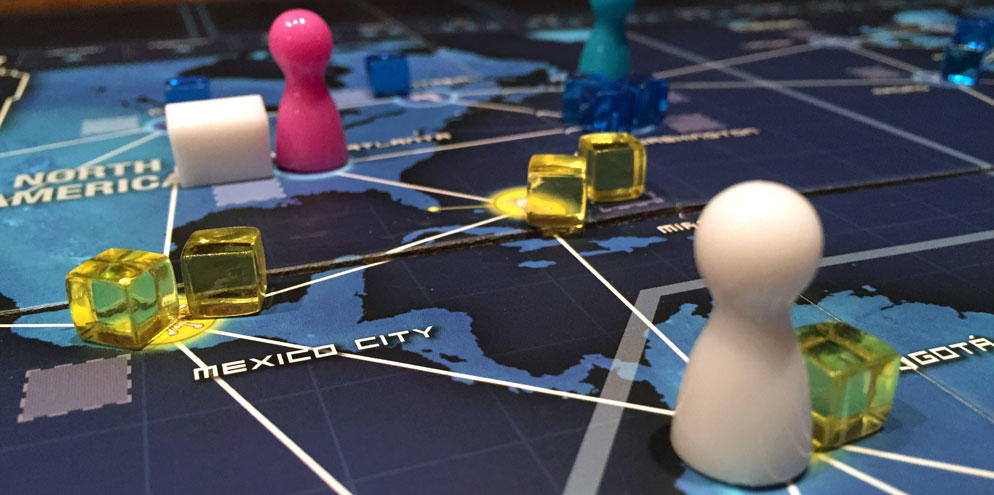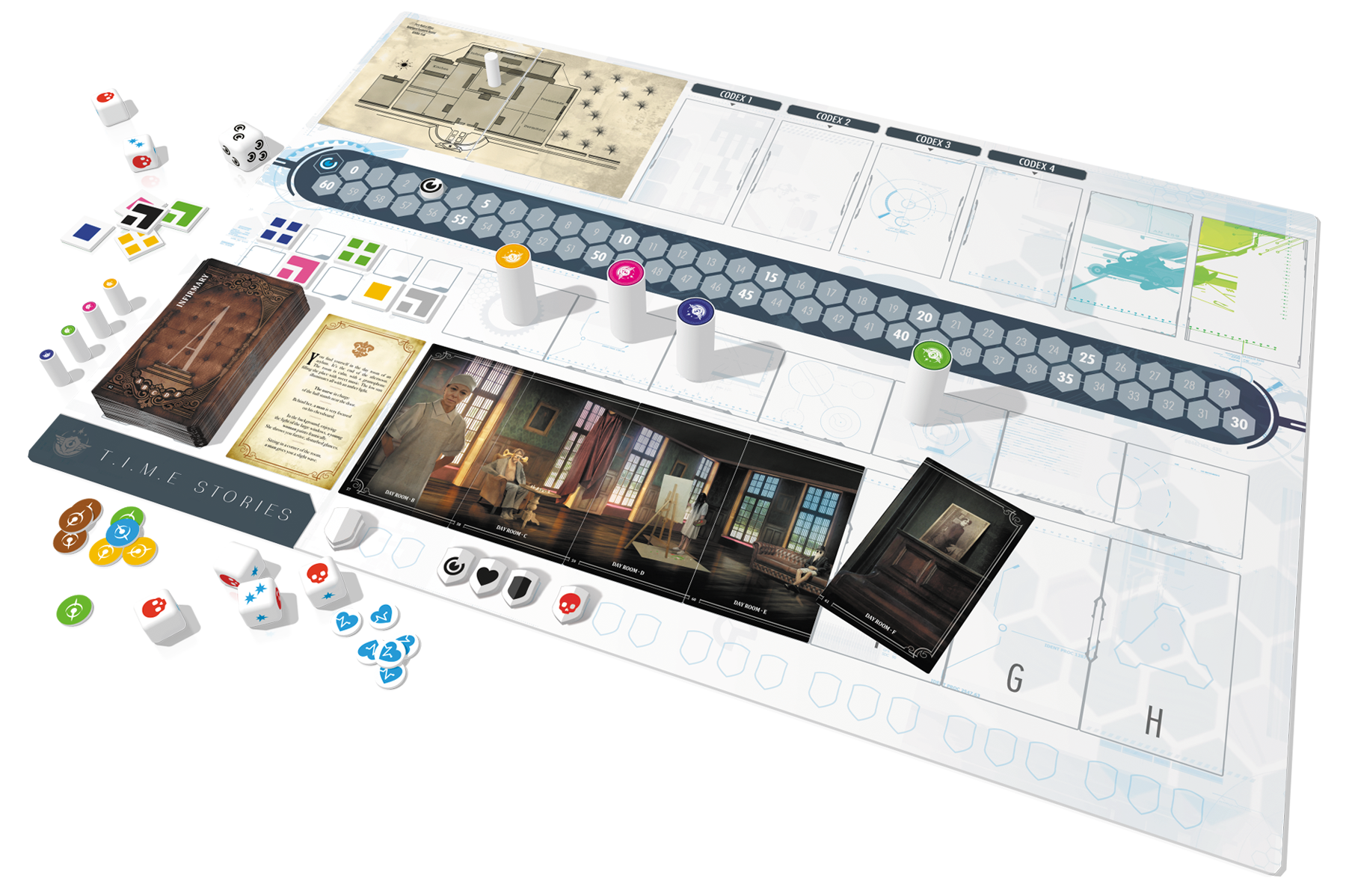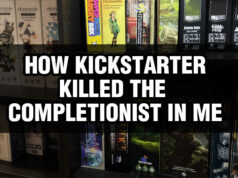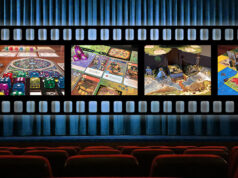Welcome to the newest section of Board Game Quest, Rumblings from the Deep. I’ve wanted to start this for a while as a place where we can talk about things on our mind. Up until now, we really didn’t have a section that would fit random thoughts we are having on the tabletop industry. Well now we do!
What you find here will be more opinions and editorials rather than the more structured content of our reviews, top ten lists, and other columns. Here you might find a gripe from a writer, praise for a company doing something awesome, or just the nonsensical ravings a loud mouth malcontent. So with that in mind, let’s get on to the topic at hand.
I want to talk to you today about innovation in our hobby and some of the side effects of that. 2015 has seen a lot of really creative board games coming to the market. I don’t think many people would argue that we are truly in a golden age of tabletop gaming.
Recently, I feel like I’ve seen a little bit of pushback from our hobby on a couple of new and unique games. I’m not just talking about new mechanics, I’m talking about games that our breaking outside the molds that we are used to.
These were some of the discussions that sparked this column.
- T.I.M.E. Stories scenario based game play and perceived replay value.
- T.I.M.E. Stories expansion model
- Pandemic: Legacy and how the game has an end point
- On the legacy genre in general
There are many more examples out there but these will give you a general idea of where I’m coming from.
Gamers today are used to being able to open up a box, setup the components, play, and repeat as often as they desire. That’s how it’s been since the dawn of tabletop gaming and I agree, it’s a pretty awesome perk.

Both Pandemic: Legacy and T.I.M.E.Stories seem to turn that model on their head. It’s no surprise that a legacy or episodic game can absolutely change the replay value of your game. At some point, you will be done with Pandemic: Legacy. Eventually T.I.M.E. Stories will stop appearing on your table unless you buy expansions.
Is that bad? Maybe… maybe not. I could get into the finances of it. How you spend X dollars for Y hours of entertainment. And then compare that to other forms (video games, movies, etc…). But you know the numbers. We all know what a great value board games are, which is probably why our hobby flourished during the recent recession.
We gamers are a spoiled lot. We pay our money and can play our game as often as we like. Typically you can get as much or even more enjoyment out of subsequent plays as you do from the first.
Compare that to video games where, outside of multiplayer only games, usually you play once and then sell or shelve it. The same goes with movies, books, and comics. Other than your absolutely favorites, you consume them once and move on.
So I get it. We like our hobby and how things have always been done. We’ve got it good.
But that doesn’t mean we have to stick to the status quo. We have more games coming out now than one could hope to play in a lifetime.
Having a wealth of choices is great, but what I honestly want is innovation. I crave it. Every time I play the next themeless euro that has me pushing cubes around a map of Europe, part of me wonders why. I feel like I’ve been here before countless times.
When I see the next shiny minis game on Kickstarter looking for backers, I immediately try to figure out how it’s different from the dozen minis games I currently have.
To be honest, when I look at a lot of games in my collection, there are many that are fairly similar to each other. If I want to play a deck builder, I have NO shortage of choices. I could literally bury myself in worker placement games. You get the picture.
But I’m not here to stop designers from creating the games they want to play. If you feel inspired, go for it and make your dream happen.

Rather, I want to applaud those designers that are branching off into uncharted territories. Eric Lang got a lot of backlash for X-Com requiring an app to play. However, it worked out great and created a surprisingly fun and unique game. The same goes for Alchemists by CGE.
And that’s what I want. I WANT new gaming experiences.
I want to be wowed when I sit down at the table. I want to finish playing a game and say to myself, “Now that was awesome” or “Let’s play it again, right away”.
So when it comes to Pandemic: Legacy or T.I.M.E. Stories, I don’t care if I’m sacrificing replay value or my gaming dollar. If you take an hour of my life and exchange it for an experience that I will remember for a long time to come, that the cost is well worth it. And I’m willing to risk technology invading my tabletop if it creates an amazing experience.
A pair of our reviewers, Alex and Steph, have actually just finished up the entire Pandemic: Legacy campaign after binge playing it this past weekend. Both of them unanimously agreed that they loved it and aren’t upset that their time with it is over. The journey was more than worth it for them.
For a hobby that spawned the cult of the new (card-carrying member right here), it’s almost a little surprising we are putting so much attention on our “gaming dollar”. I mean, how often do we play a new game a couple of times and then immediately begin to drool over the next shiny one.
I’m not worried about our industry turning into the video games industry with day 1 DLC or micro transactions. I just don’t see it happening. Outside of the punchline that has become Magic: The Gathering’s “Tap Patent”, we are a very friendly industry. I see Daniel Solis give away game design ideas on his twitter feed all the time. People have been re-themeing Love Letter for years and AEG has been cool with it.
Designing games is hard. I know, I’ve tried. Unless you are Eric Lang, who clearly must be some kind of game designer robot from the future. Seriously, does that man ever sleep?
I imagine that every designer wants to create the next Dominion. A game that will leave a lasting mark on our hobby. And it does happen. But not without taking risks or challenging what people expect.
If we want to rail on Pandemic: Legacy or T.I.M.E. Stories, do it because you don’t like the game. Not because you don’t like how they are changing your perspective on how games should work. Right or wrong, they are giving us something unique.
So to all budding and established designers out there, be a little bit insane.
I want crazy designers who are not afraid to not only think outside the box, but remake the box into what they want it to be. I want designers to think they are going to revolutionize the industry. I want them to kick our hobby in the gut have us ask for more. Give us something we will remember for a long time and I assure you, we’ll thank you for it.
But if we make them fear change, then we will end up like Hollywood who is addicted to rebooting the same movies over and over. I don’t want that for us. I want us to keep innovating with fresh and unique gaming moments.
Finally, I want to close with an excerpt from Ignacy Trzewiczek’s book Board Games That Tell Stories. This excerpt stuck out in my mind while writing this. He talks about how he wants to change the world with every game he designs. That’s what I want. Don’t make a me a better mouse trap. Obliterate the mouse with a nuke.
“Every time I sat down to work on Stronghold, tinkering with the rules, drawing boards, sketching the outlines of a castle, at every point, every afternoon, there was one thought on my mind: ‘Here comes Stronghold, the best board game in the world.’ I would create new actions for the Invader, or design new actions for the Defender and mutter: ‘Agricola, you are about to lose your crown, Stronghold is coming.’ Everything I did for the game, I did believing that I was creating the best board game in the world. I would lie awake at night tossing and turning, trying to come up with ever better design choices, so it could beat Puerto Rico and all the other top games.
I’m a realist. I know that Stronghold won’t ever reach the No. 1 spot in the BGG charts. I knew it even when I was creating it. But being realistic has nothing to do with it. When you design a game, you clench your teeth and do everything you can to create the best game on earth. There is no other way. Your game will revolutionize the market, it’ll win you both the Spiel des Jahres and the Deutscher Spiele Preis, and your name will become synonymous with genious. That’s all that matters to you.”
Used with permission from Board Games That Tell Stories.
























Speaking of Stronghold… when can I get my hands on the 2nd Ed?
Great article. I like the feature.
From the business standpoint of gaming, companies are creating ongoing cash inflows based around one game theme. Board games that can be replayed have a shorter economic life. Once the market has become saturated, sales will taper off. Creating a once and done game will leave gamers wanting more and ready to pay for more. Expansions play a similar role. Good article…I agree it should be about the experience and not always about replay value.
I read this paragraph and pumped my fist a little bit, because you said it so, so well: “If we want to rail on Pandemic: Legacy or T.I.M.E. Stories, do it because you don’t like the game. Not because you don’t like how they are changing your perspective on how games should work. Right or wrong, they are giving us something unique.”
That’s awesome, and I completely agree.
How many Jamey’s are there online? 🙂